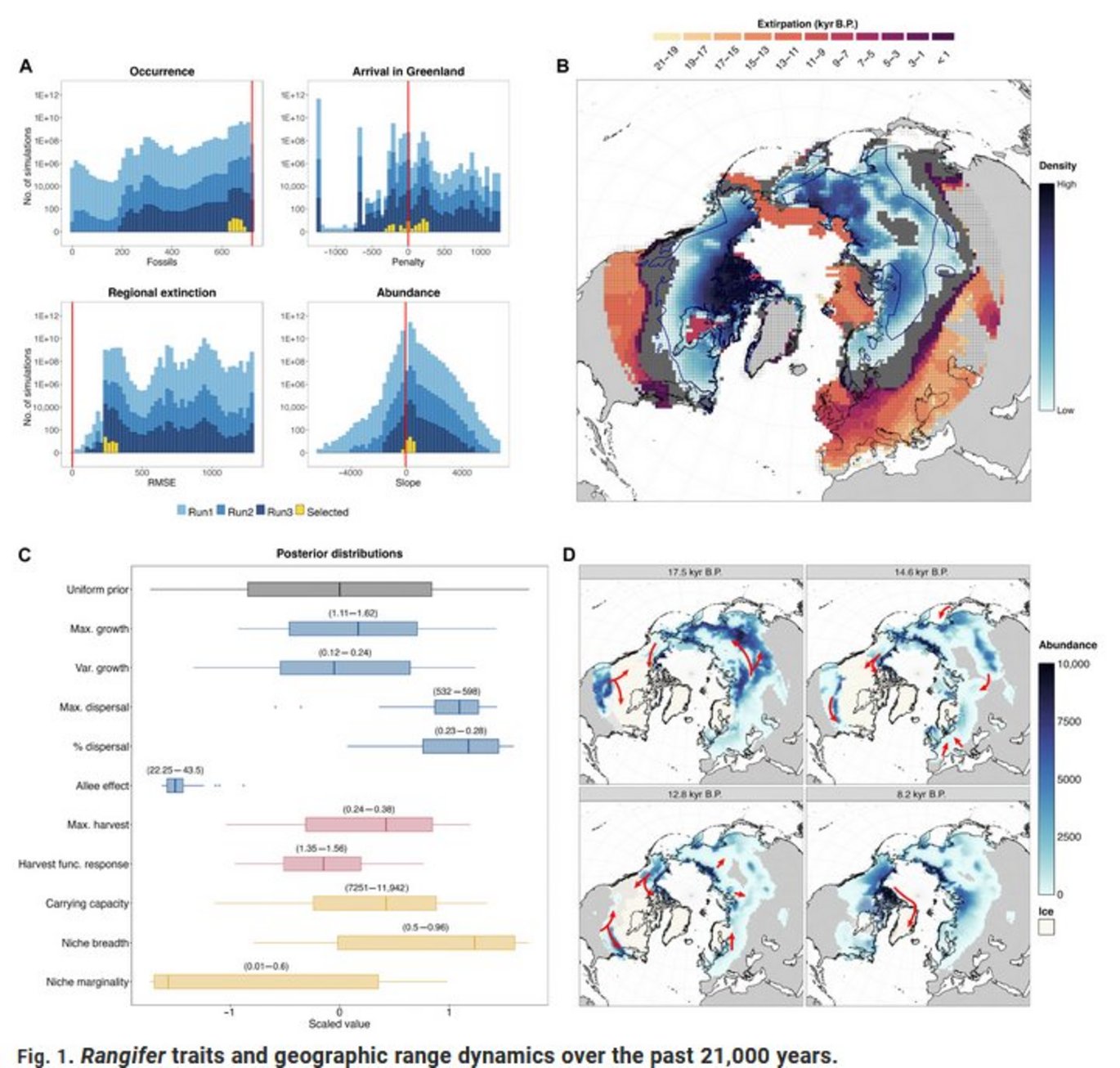Mismatch in reindeer resilience to past and future warming signals ongoing declines
New publication by Elisabetta Canteri, Stuart C. Brown, Eric Post, Niels Martin Schmidt, David Nogues-Bravo, Damien A. Fordham

Abstract:
Rangifer tarandus (caribou or reindeer) survived periods of abrupt climatic warming during the last deglaciation but are currently in global decline. Using process-explicit models of likely climate-human-Rangifer interactions and inferences of demographic change from radiocarbon-dated fossils and ancient DNA, we reconstruct and decipher 21,000 years of Rangifer population dynamics. These high-resolution population reconstructions pinpoint ecological characteristics and life-history traits that most likely enabled Rangifer to survive rapid warming events following the Last Glacial Maximum. Projecting these process-driven models into the future reveals that these attributes are unlikely to buffer Rangifer against wide-scale population declines from expected 21st Century climatic warming. Our findings highlight a need to boost investments in the management and conservation of Rangifer, particularly in North America, where projected losses are expected to exceed 80 but also help sustain the socioeconomic, cultural, and emotional well-being of many Rangifer-dependent communities. Rangifer population dynamics over 21,000 years reveal that future climatic warming will cause losses that surpass safe boundaries.
